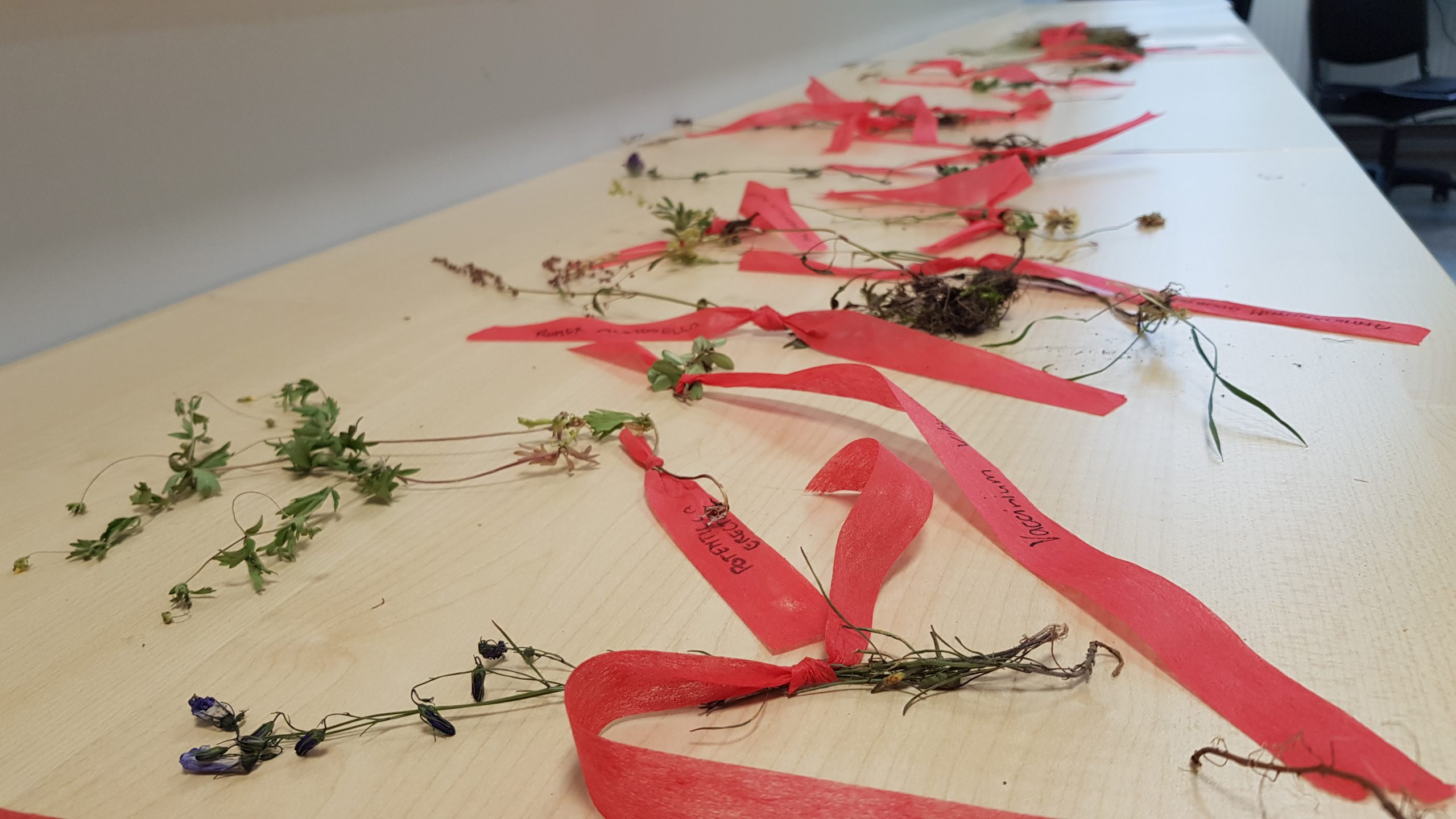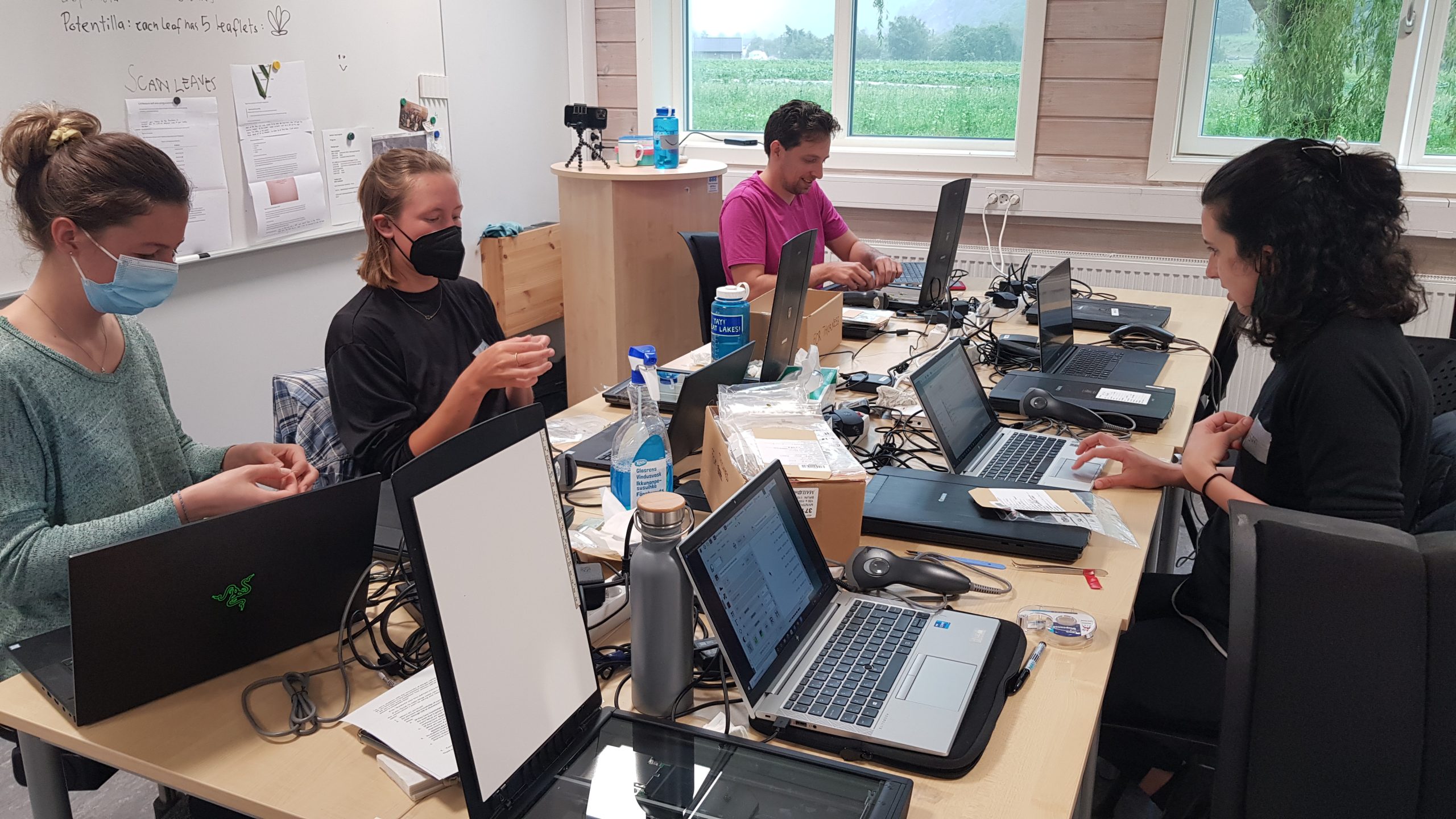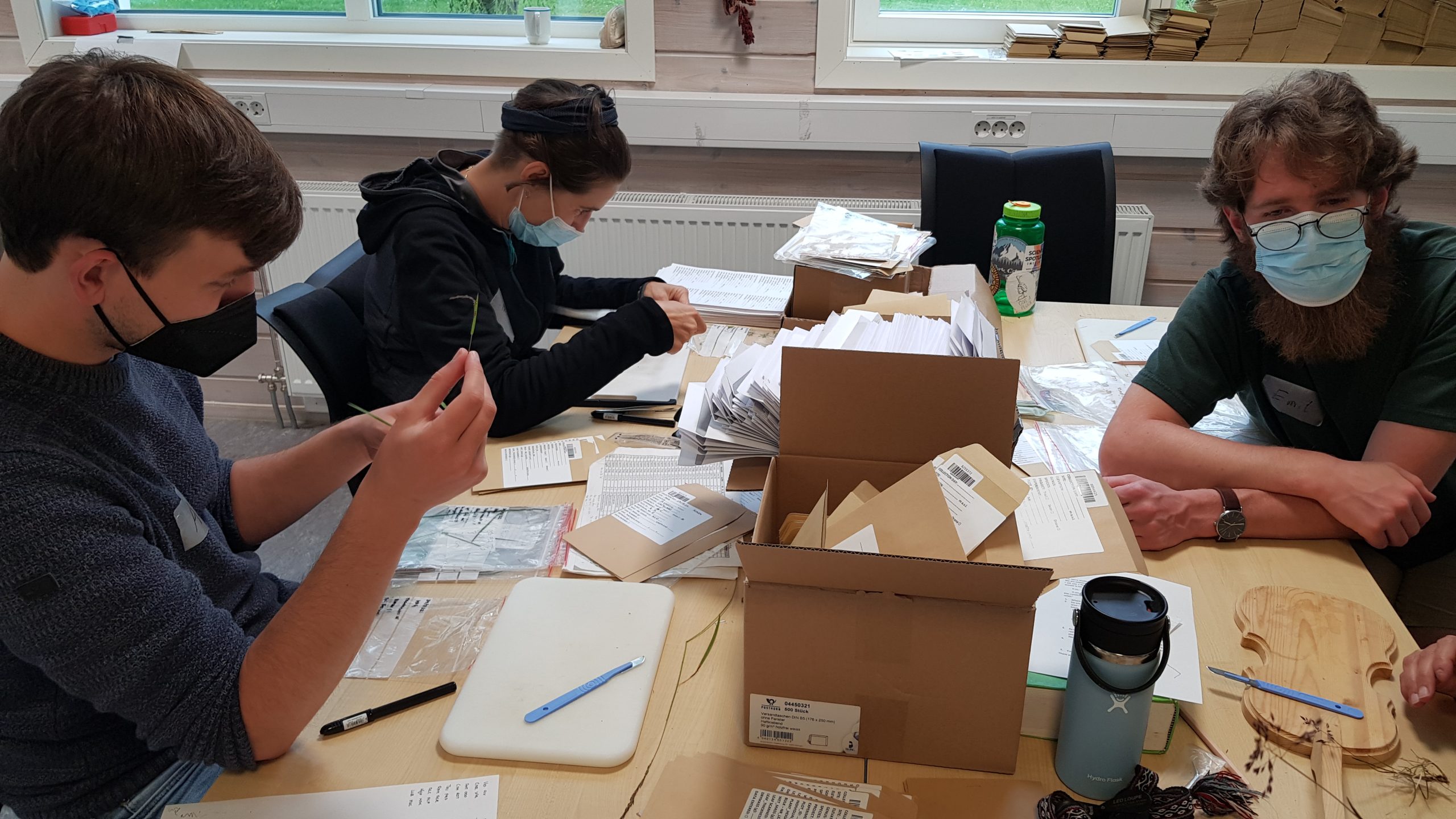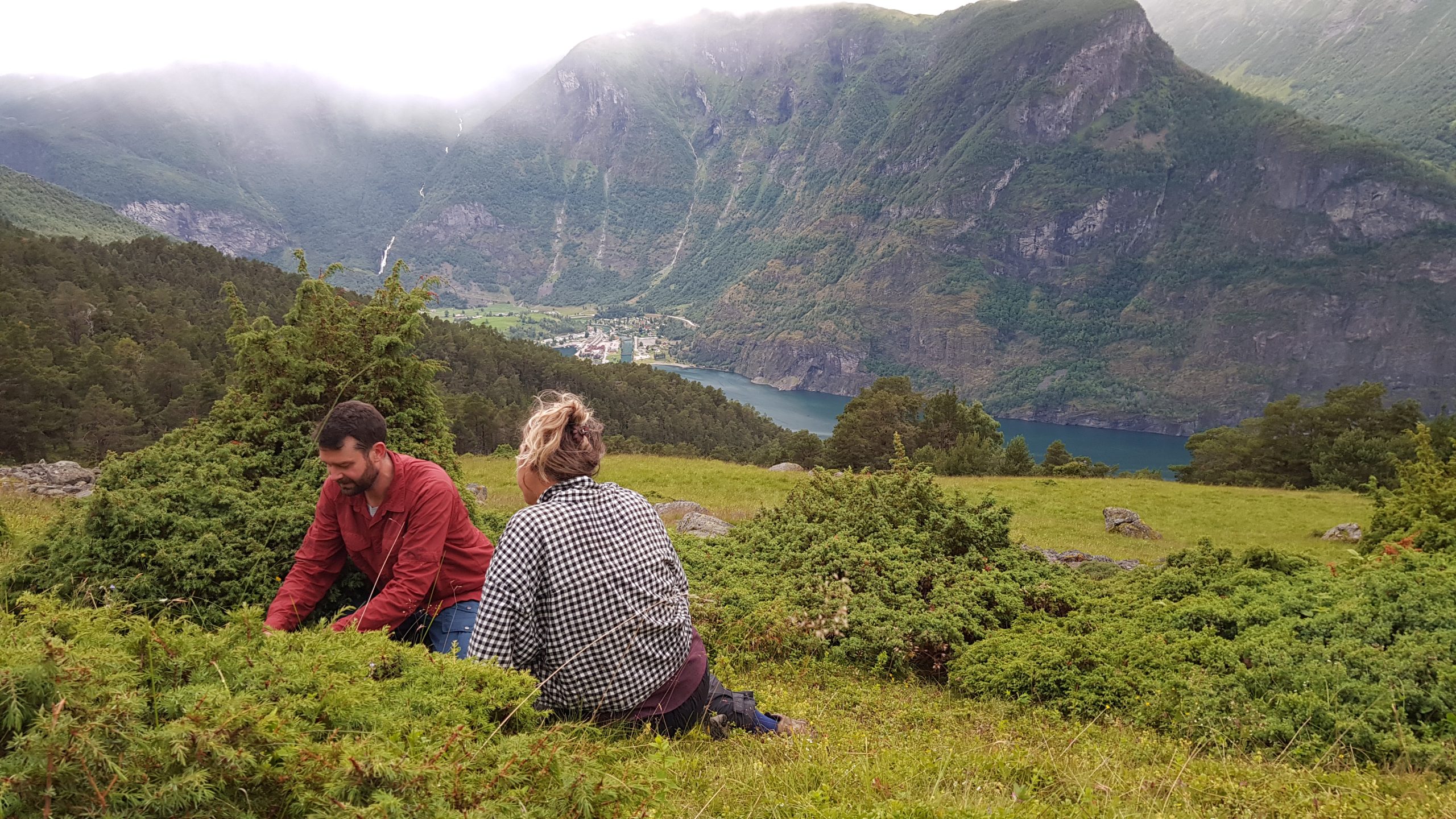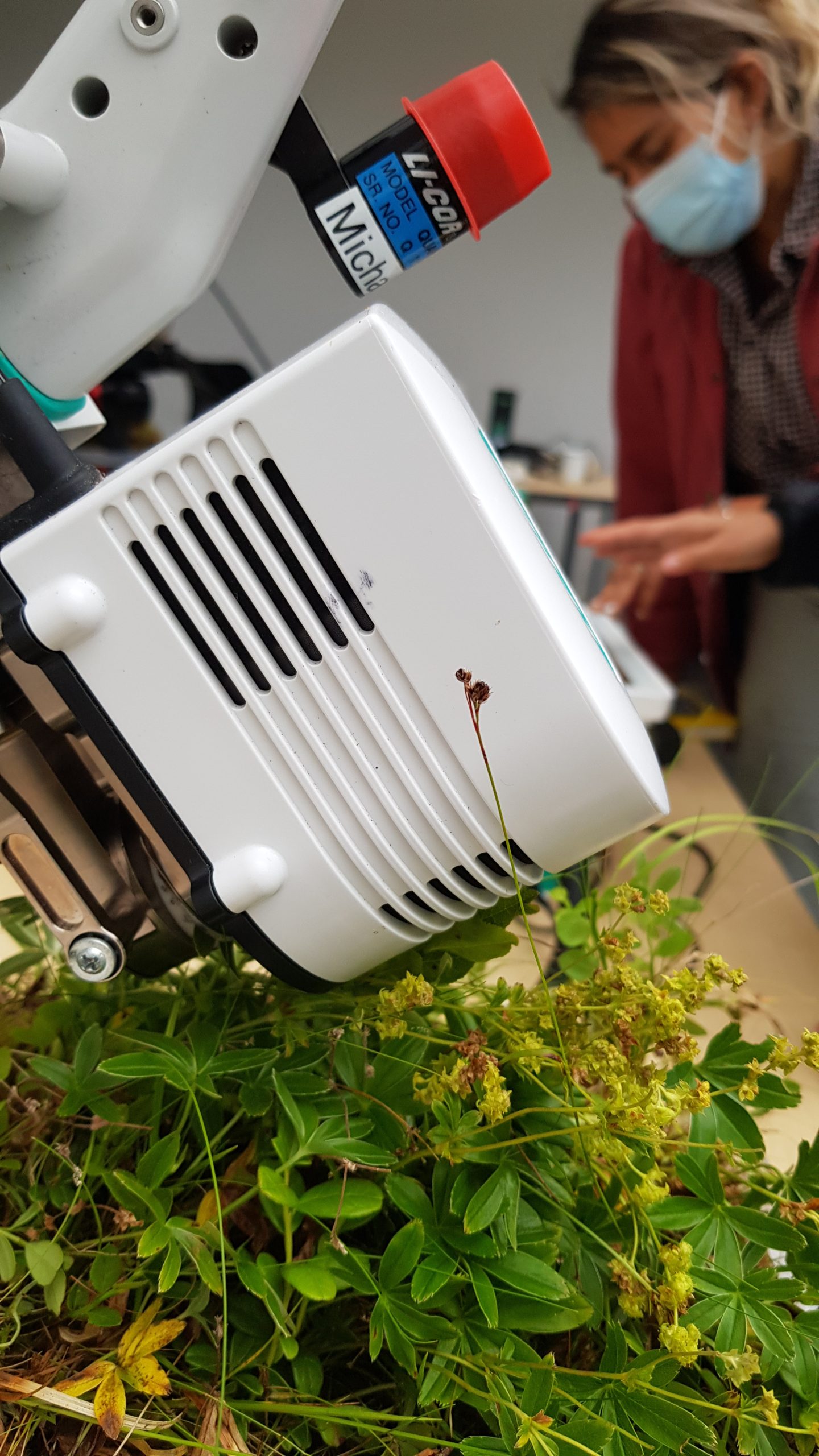Amidst fjords, steep mountains, and occasional pouring rain, the sixth edition of the Plant Functional Traits Course has successfully kicked off.
42 students and staff members from 27 institutions over 15 countries have gathered in western Norway to study mountain vegetation and its attributes, all the while getting hand-on experience in collecting a large and valuable dataset of plant functional traits.
The students are divided over five groups, each with a different research focus - collecting complementary data to help get a more holistic understanding of the functioning of mountain vegetation in a changing world. Group 1 is led by Sonya Geange and Vigdis Vandvik, and studies how experimental warming and differences in precipitation influences the alpine plants and their functional traits such as leaf thickness, plant height, leaf area, weight, and nutrient composition. Group 2, led by Aud Halbritter, studies the same functional traits in the vegetation, but focuses on how these traits change along an elevational gradient spanning from 500 – 1300 m.a.s.l. and how that is influenced by grazing, warming and nitrogen deposition. This same elevational gradient is the focus of group 3, which is led by Sean Michaletz and Josef Garen and studies the photosynthetic activity of plants and its optimal temperature range, measured at leaf level. Carbon exchange along the elevational gradient is measured at the plot level by group 4, led by Julia Chacon Labella and Joseph Gaudard. Using the unique opportunity of this course, this group will perform carbon flux measurements during 24 hours in each of the four sites. Finally, group 5 is led by Marc Macias Fauria and will be mapping the distribution of species and functional traits at the landscape scale, using a drone equipped with a multispectral camera.

In addition to training in the hard ecological research skills, we want to engage with the local population by informing them of our goals and activities, and listening to what they have to say about the areas we study. Under the guidance of Sehoya Cotner and Alyssa Olson, our students conduct interviews with the residents of Aurland, asking them what they know about the research that we carry out, what they would want to know from us, and what their advice is for ensuring a positive relationship between field ecologists and local residents. In addition, we will hold an open house at the Sogn Ecological Agricultural School (Sogn Jord- og Hagebruksskule) in Aurland, where we inform about our work and motivation, and are able to interact with anyone who is interested. Finally, we are joined this year by Kai Lepley who will make a documentary about this course, the people in it, and our views on science and what it means to be a scientist in today’s society. This documentary will be made available on public platforms.
So far, we are off to an excellent start. We are lucky with a fantastic group of enthusiastic students, wonderful food cooked for us straight from the farm, and of course beautiful surroundings. We are eagerly looking forward to seeing the final results of these 12 days of hard work!





